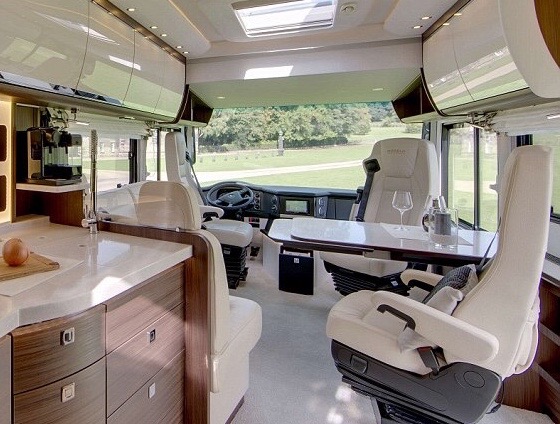One of the key reasons people want self-driving vehicles is to make their daily commute less tedious. But the possibilities go much further than simply allowing you to take your hands off the steering wheel so you can text your friends on the way to work.
At a conference in Bavaria recently, I asked the question, “Where would you most like to spend the time between getting up in the morning and arriving at the office?” For me, that place would need to have a charger for my laptop, a table, comfortable chairs, and a really good coffee machine, ideally filled with my choice of coffee beans. My coffee mug would be in the cupboard, and there would be fresh milk in the fridge.
Yes, I basically want a self-driving cafe.
The closest image I could find online was this; the front of a large and luxurious motorhome:

Now, I might not need something this large and luxurious just for my own personal commute, but you get the idea: this is nothing like my current car; it’s more like a room of my house that just happens to move around.
People often predict that autonomous vehicles will mean the end of car ownership; if you’re just a passenger in the vehicle, why not treat it like a taxi, and summon it when you need it? No doubt that will happen in some situations, if your main use for a car is the occasional trip to a restaurant, or the shopping mall, or the airport. But for a daily commute, very few people choose a taxi at present, and I think that’s unlikely to change much if the driver happens to be silicon-based instead of carbon-based.
But if we ever get something like the self-driving breakfast bar I describe above, it will, I think, be an even more personal space than the cars of today: it’ll grind my coffee beans, play my music, have the right adapter for my laptop. It may even have my choice of curtains at the windows. It will be more tailored to the various needs I have while using it, than is a traditional car, which is tailored primarily to the single task of guiding it down the road.
In short, so many more personal preferences may be involved in choosing and using such a vehicle that I think — for the purpose of commuting, at least — rumours of the death of car ownership may have been somewhat exaggerated.
Recent Comments